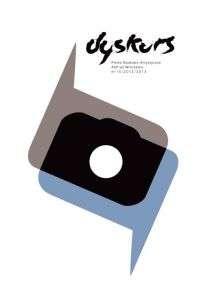O ideale obróconym w dowcip. Fotografia kompozytowa Francisa Galtona i jej odźwięki
On Ideals Made Funny: Francis Galton’s Composite Photography and Its Echoes
Author(s): Leszek BrogowskiSubject(s): Photography
Published by: Akademia Sztuk Pięknych im. Eugeniusza Gepperta we Wrocławiu
Keywords: Photography; Francis Galton; Ideals; Fine art
Summary/Abstract: Francis Galton (1822-1911) was a “private” scholar: a traveler, a statistician, a meteorologist, but his real passion was connected with scientific laws of heredity. In 1869, he published a book entitled ‘Hereditary Genius’. In 1883, he introduced the term “Eugenism” to describe the theory of “improvement of the human race.” This theory revealed his ‘scientific’ ambitions and it included, as its instrument, composite photography, which, as Galton believed, could be sued in order to determine the ideal type of potential criminal offenders: violent and/or not violent thief, a murderer (but also a consumptive, gay, Jew, etc.). Galton did not realize that the tradition of the ideal forms of classicism, not to mention physiognomy, insidiously crept into his scientific theory. He neither realize to what extent his theory was based on aesthetic values characteristic to the period of time he lived in nor to what extent it was connected with the nineteenth-century aesthetic canons. Leszek Brogowski analyses the epistemological and aesthetic issues connected with composite photography and its place in the history of ideas and the history of art in the twentieth century (it significantly influenced Wittgenstein’s philosophy and inspired Freud).
Journal: DYSKURS Pismo Naukowo-Artystyczne ASP we Wrocławiu
- Issue Year: 2013
- Issue No: 1 (15)
- Page Range: 70-102
- Page Count: 33
- Language: Polish

